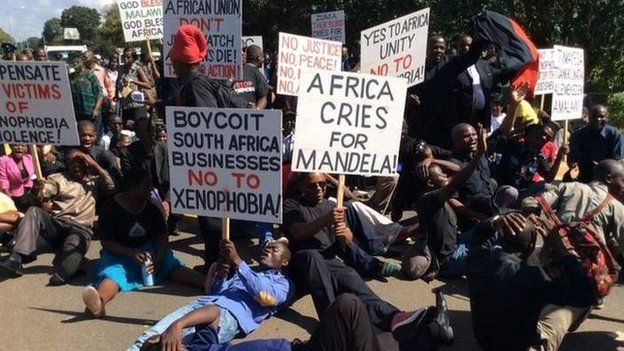
Telecommunications companies are a rarity in the stock market, their shares have exhibited characteristics of both income and growth stocks. For periods of several years, a company may enjoy its regulatory privileges like other utilities. Telecom firms often are protected from competition by government mandate, and produce reliable, generous dividend yields (generated by high monthly revenue from its stable customer base).
However, Africa has got its peculiarity when it comes to investment. I shall elucidate more in the coming paragraphs so as to guide your thoughts and decision before embarking on telecommunication investment
Africa is struggling to create the infrastructure to sustain telecommunication sector amidst different dynamic challenges ranging from unpredictable political system, unstable economy, power, government policies like ‘right of way’, security of equipment and so on.
The Nigerian telecommunication sector, for example, is the largest segment of the Information and Communication sector. Nigeria has one of the largest telecom markets in Africa. The Nigerian Telecommunication sector has emanated over the years to an appreciable market structure (a small number of firms have the majority of market share). The sector includes a strong multinational presence. The leading players are MTN, a South African based multinational company with a market share of 37.21%, Airtel (an Indian based multinational telecommunication), Glo (a Nigerian multinational company) and 9mobile (formerly Etisalat).
The demand for telecommunications services persists regardless of changes in the business cycle. But if a firm hits a slump because of shifts in the industry (like the growing importance of wireless devices), value investors might snap it up, provided its fundamentals remain strong and it proves adept at adapting to change. The telecommunications sector dividends makes the waiting period for share prices to improve more enjoyable.
There has been a decline of GSM mobile subscribers as the market experience has changed due to the dynamism in the product requirement. Consumers are moving away from traditional cellular services to data bundle packs.
Internet service providers are currently at ‘internet-battle’ with the telecom companies to deliver data at relatively affordable prices. The fierce price competition among telecom operators on their voice and internet data has led to the contraction in the sector revenue over time. Consumers benefit from temporary low prices only in the short run. While Nigeria’s data bundle prices are the lowest in sub-Saharan Africa, they are priced below actual costs which can harm the sector and puts long-term customer benefits at risk.
Smaller mobile network operators find it hard to survive in the market which leaves an industry dominated by few players. These few players will increase their market share and have the power to influence prices. Prices can more than double which can have a negative effect on the levels of consumption.
In recent years, Nigerian companies have had difficulties accessing foreign currency (FX) to finance their dollar/FX debt. The telecommunications sector was no exception. They have been adversely affected by both a financial crisis. Etisalat, for example, obtained a $1.2 billion foreign-backed guarantee bond in 2013 to upgrade and expand its operations but has been unable to meet its obligations since 2016. Etisalat’s outstanding loan has adversely affected 13 Nigerian banks. Given the macroeconomic climate, it is expected that banks will record a substantial amount of nonperforming loans (NPLs) due to the debt crisis. Such a scenario will adversely affect their profits (a 12% decline is expected in 2017) and their ability to meet their activities.
Telecom sectors present a greater risk to investors, with stocks registering anywhere from 7% (for services) to 15% (wireless) to 24% (equipment) more volatility than the broader market. Investors with heavy exposure to telecom can expect stronger-than-average gains during bull markets. When a recession or bear market hits, however, losses from this sector can be severe.
An opinion piece by Obafemi Adekunle. He is the founder and group chief executive of the Black Alliance. Also a former Vice President mergers and acquisitions at Goldman Sachs Inc and Head of internal audit at citizen bank Boston as well as a member of the internal audit team at Société générale in France.
The opinions expressed in this article are solely those of the author and not of Concise News.
Recommended Read: Romantic Good Night SMSs

















